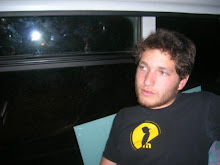It is easy to forget that even when governments are officially not talking to each other, they still really probably are. In today's online edition of the Jerusalem Post, I spotted an article announcing that over 550 Druze religious leaders and elders living in northern Israel just began a five day trip into Syria to see religious holy sites and reunite with family members who live in across the border. The Druze are a religious minority group in Israel. They split from Islam in the 11th century and its people are spread mainly throughout Israel, Syria, and Lebanon, although they also have diaspora communities throughout the world.
Over the past couple of months, the Obama administration has asked neighboring Arab states to grant confidence building measures to Israel (like opening cultural attache offices in various Middle Eastern cities and granting Israel flyover airspace en route to other destinations). These requests were made so that Israel might back any concessions it makes to its hesitant constituency (specifically regarding the halt of settlement activity in the West Bank). The Arab states however have overwhelmingly rejected this notion and refused to cooperate with President Obama. It is noteworthy, then, to discuss why this specific measure--taken on jointly both by Israelis and Syrians, is not receiving greater publicity. Although the two governments aren't officially talking with each other, and the article does stress that the International Committee of the Red Cross (ICRC) has been shuttling back and forth figuring out the minutiae, surely there must be significant cooperation between the two governments (i.e. within their defense and interior ministries) to successfully pull off a stunt of this size. We're not talking about an individual family crossing the border and receiving special immunity, we're talking about hundreds of people with Israeli citizenship and full right, many of whom have served in the Israeli military, being bussed around for almost a week in what is officially enemy territory. Remember, Syria remains in a perpetual declared "state of war" with Israel. According to Post article, the Druze Member of Knesset (Israeli Parliament) Ayoub Kara helped orchestrate this diplomatic opening. In fact, it is part of his greater platform to organize border openings of these sorts once a month. If he were to succeed at opening the borders even bi-monthly, surely many would consider that a significant confidence building measure from which to build on.
For any sort of progress to be made, these sorts of steps must always be taken when made available: small tokens of cooperation now open up larger options down the road. In the case of Syrian-Israeli relations, this type of measure might eventually lead to bi or trilateral negotiations for peace. Israel conquered the Golan Heights from Syria in the 1967 Arab-Israeli war and Syria refuses to negotiate unless Israel completely evacuates the Golan and returns it to Syria. However, Israelis fear that giving back the region where much of Israel's natural, flowing water resources begin would be suicidal: not only would Syria be able to block the already scarce water sources from entering Israel, it could poison them, use them for sewage diversion etc. But, if you build trust through cooperative gestures, you get to negotiate on a serious level. If you solve the water disputes, you solve the Golan Heights (to grossly simplify this complicated topic, many, including me, believe that there is a way for Israel to give back almost all of the Golan to Syria and still leave its water security completely in tact). If you solve the Golan Heights, you get peace with Syria.
In a scene where prospects for peace are bleak, one has to believe that big things can happen when small steps are taken. A signal of cooperation between Israel and Syria is always a sign for optimism, but only if the two nations capitalize on the little thing to further the greater, underlying peace process will such signals have any meaning.
An edited version of this article can also be found on the online edition of the Columbia Spectator Newspaper here.
The Jerusalem Post article can be found here.
Thursday, September 24, 2009
Subscribe to:
Post Comments (Atom)

No comments:
Post a Comment